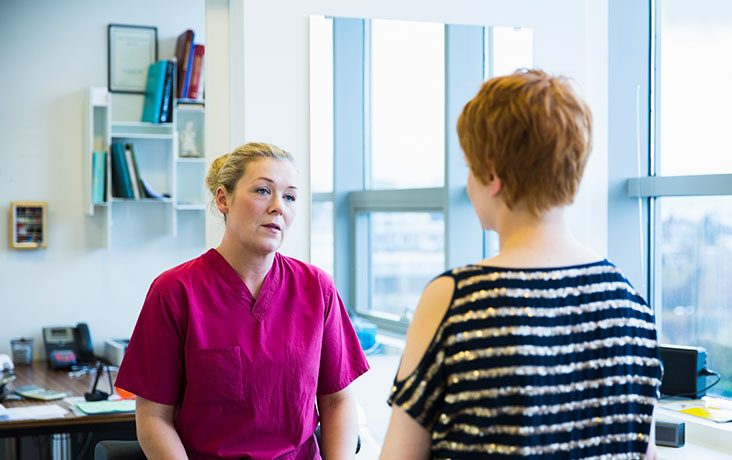Some women sail through the menopause but for many others it can be a challenging time. Hot flushes, vaginal dryness, loss of libido, night sweats, dry skin and many other unpleasant symptoms are very common.
Hormone Replace Therapy (HRT) is typically offered to women suffering with any number of these symptoms. It’s a robust solution that’s been around for decades, bringing safe and effective relief.
HRT can make a huge difference to your patient’s quality of life
Many studies have been carried out around quality of life in the menopause, and the impacts that HRT can have. Although the symptoms of the menopause are not life-threatening, they can be very uncomfortable. This in turn will negatively impact a woman’s mental health and wellbeing.
Reduces night sweats and hot flushes
Night sweats and hot flushes are some of the most common menopausal symptoms reported. However, many patients note an improvement in these symptoms within two weeks or less of starting HRT treatment. Sometimes they stop altogether.
Cuts the risk of cardiovascular disease
New research has shown that taking HRT can reduce the incidence of coronary heart disease if treatment starts within ten years of the menopause.
Helps improve urinary symptoms and vaginal dryness
Very soon after starting HRT, many patients find that intimacy becomes more comfortable, and their libido improves too. Those who leak urine when coughing, sneezing or playing sport will also likely find they don’t need to rush to the loo quite so often.
Additional benefits
There are many other benefits that patients have reported having started a course of HRT. They include skin which is smoother and less dry, and fewer aches and pains. This is likely to be because HRT actually has a protective effect against connective tissue loss in tissues such as skin, joints, bones and mucous membranes.
Taking HRT is also thought to cut the chances of a woman developing dementia including Alzheimer’s disease. Many studies have also shown that taking oral combined HRT can reduce the risk of colorectal cancer.
What are the risks?
For the vast majority of women, the benefits of undertaking Hormone Replacement Therapy far outweigh the risks.
However, HRT has been associated with a slightly increased risk of breast cancer, as well as heart disease, strokes, and blood clots. The risks are incredibly small and depend on the kind of HRT a patient is taking. However, it’s extremely important that clinicians take a thorough patient history and discuss the risks with them.
Better support your patients through the menopause
If you work in gynaecology or regularly see patients suffering with symptoms of the menopause, why not brush up your skills with our half-day online course Caring for women around the menopause. Aimed specifically at nurses and other allied healthcare professionals, this programme offers a solid foundation in enabling healthcare providers to promote a healthy menopause, encouraging positive health changes for the future.
Held entirely online, it’s a great chance to network and is very interactive. The course is worth 4 hours of CPD and runs from 10:00am – 2:00pm. All course materials and evaluations are provided.
Spaces fill up quickly so book today to avoid disappointment!







